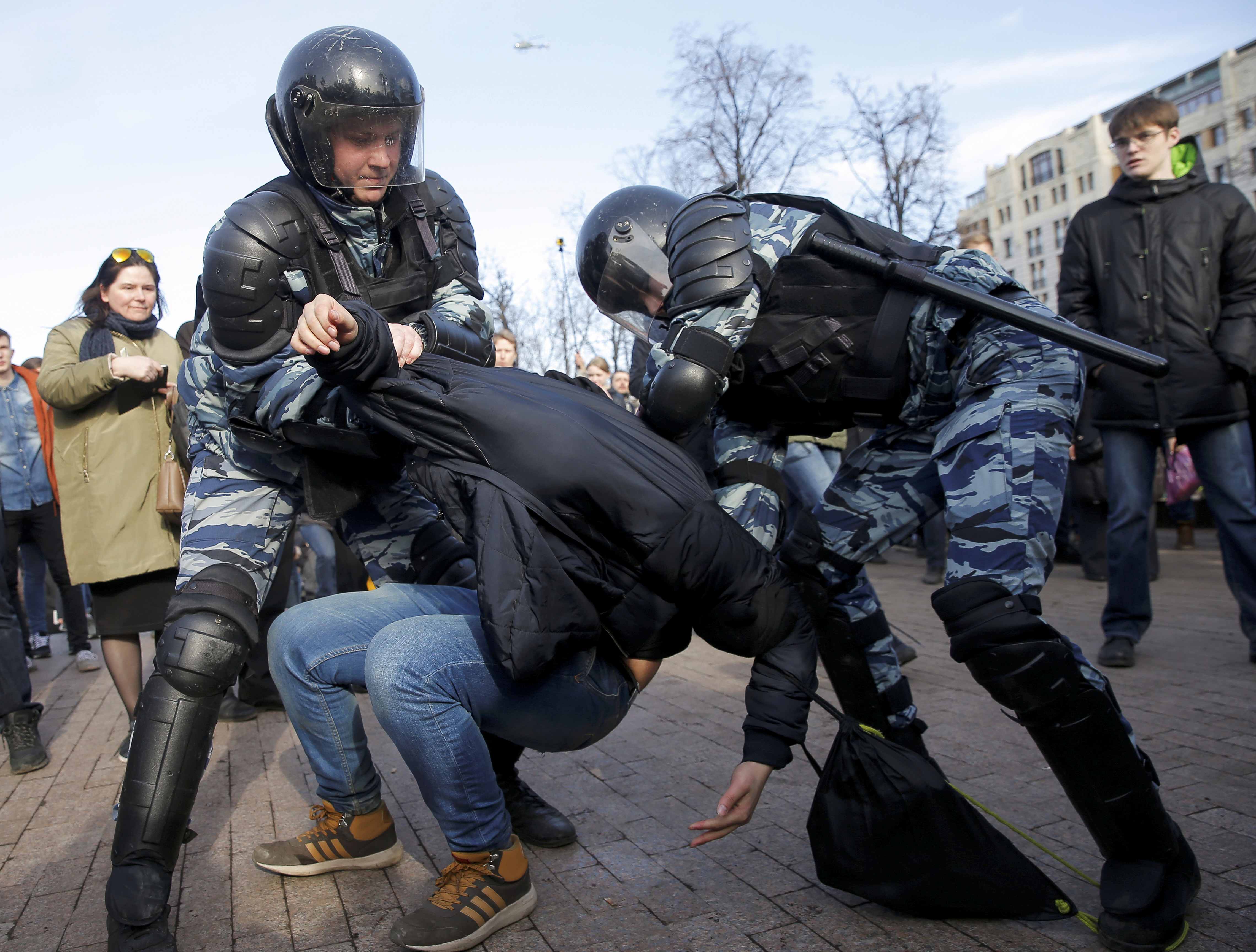
By Andrew Osborn and Andrey Ostroukh
MOSCOW (Reuters) – President Vladimir Putin ordered “a significant part” of Russia’s military contingent in Syria to start withdrawing on Monday, saying Moscow and Damascus had achieved their mission of destroying Islamic State in just over two years.
Putin, who polls show will be re-elected comfortably in March, made the announcement during a surprise visit to Russia’s Hmeymim air base in Syria, where he held talks with President Bashar al-Assad and addressed Russian forces.
The Kremlin first launched air strikes in Syria in September 2015 in its biggest Middle East intervention in decades, turning the tide of the conflict in Assad’s favor, while dramatically increasing Moscow’s own influence in the region.
Syrian state television quoted Assad as thanking Putin for Russia’s help, saying the blood of Moscow’s “martyrs” had been mixed with the blood of the Syrian army.
Russia’s campaign, which has been extensively covered on state TV, has not caught the imagination of most Russians. But nor has it stirred unease of the kind the Soviet Union faced with its calamitous 1980s intervention in Afghanistan.
The use of private military contractors, something which has been documented by Reuters but denied by the defense ministry, has allowed Moscow to keep the public casualty toll fairly low.
Russia’s “mission completed” moment in Syria may help Putin increase the turnout at the March presidential election by appealing to the patriotism of voters.
Though polls show he will easily win, they also show that some Russians are increasingly apathetic about politics, and Putin’s supporters are keen to get him re-elected on a big turnout, which in their eyes confers legitimacy.
‘THE MOTHERLAND AWAITS’
Putin, who has dominated Russia’s political landscape for the last 17 years with the help of state television, told Russian servicemen they would return home as victors.
“The task of fighting armed bandits here in Syria, a task that it was essential to solve with the help of extensive use of armed force, has for the most part been solved, and solved spectacularly,” said Putin.
Wearing a dark suit and speaking in front of a row of servicemen holding Russian flags, Putin said his military had proved its might, that Moscow had succeeded in keeping Syria intact as a “sovereign independent state” and that the conditions had been created for a political solution.
Putin is keen to organize a special event in Russia – the Syrian Congress on National Dialogue – that Moscow hopes will bring together the Syrian government and opposition and try to hammer out a new constitution.
“I congratulate you!” Putin told the servicemen.
“A significant part of the Russian military contingent in the Syrian Arab Republic is returning home, to Russia. The Motherland is waiting for you.”
Putin made clear however that while Russia might be drawing down much of its forces, its military presence in Syria was a permanent one and that it would retain enough firepower to destroy any Islamic State comeback.
Russia will keep its Hmeymim air base in Syria’s Latakia Province and its naval facility in the Syrian Mediterranean port of Tartous “on a permanent basis,” said Putin.
Both bases are protected by sophisticated air defense missile systems.
Separately, Kremlin spokesman Dmitry Peskov said Putin and Turkish counterpart Tayyip Erdogan would discuss a possible political resolution to Syria’s more than six-year-old war when they met later on Monday in Ankara, as well as preparations for the work of the Syrian Congress on National Dialogue.
(Additional reporting by Polina Nikolskaya and Beirut newsroom; Writing by Andrew Osborn; Editing by Mark Heinrich)








